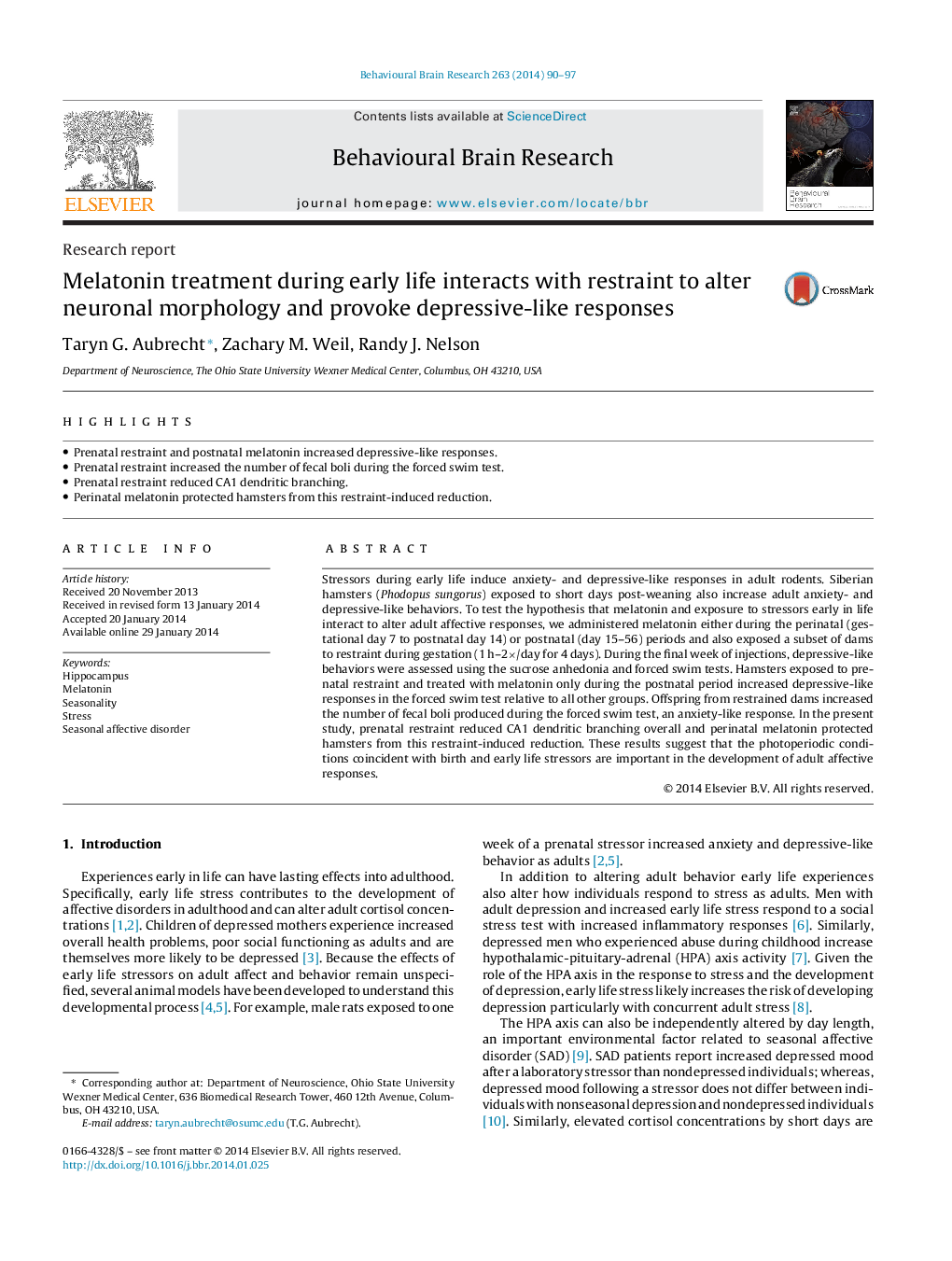| کد مقاله | کد نشریه | سال انتشار | مقاله انگلیسی | نسخه تمام متن |
|---|---|---|---|---|
| 6258143 | 1612969 | 2014 | 8 صفحه PDF | دانلود رایگان |
- Prenatal restraint and postnatal melatonin increased depressive-like responses.
- Prenatal restraint increased the number of fecal boli during the forced swim test.
- Prenatal restraint reduced CA1 dendritic branching.
- Perinatal melatonin protected hamsters from this restraint-induced reduction.
Stressors during early life induce anxiety- and depressive-like responses in adult rodents. Siberian hamsters (Phodopus sungorus) exposed to short days post-weaning also increase adult anxiety- and depressive-like behaviors. To test the hypothesis that melatonin and exposure to stressors early in life interact to alter adult affective responses, we administered melatonin either during the perinatal (gestational day 7 to postnatal day 14) or postnatal (day 15-56) periods and also exposed a subset of dams to restraint during gestation (1Â h-2Ã/day for 4 days). During the final week of injections, depressive-like behaviors were assessed using the sucrose anhedonia and forced swim tests. Hamsters exposed to prenatal restraint and treated with melatonin only during the postnatal period increased depressive-like responses in the forced swim test relative to all other groups. Offspring from restrained dams increased the number of fecal boli produced during the forced swim test, an anxiety-like response. In the present study, prenatal restraint reduced CA1 dendritic branching overall and perinatal melatonin protected hamsters from this restraint-induced reduction. These results suggest that the photoperiodic conditions coincident with birth and early life stressors are important in the development of adult affective responses.
Journal: Behavioural Brain Research - Volume 263, 15 April 2014, Pages 90-97
